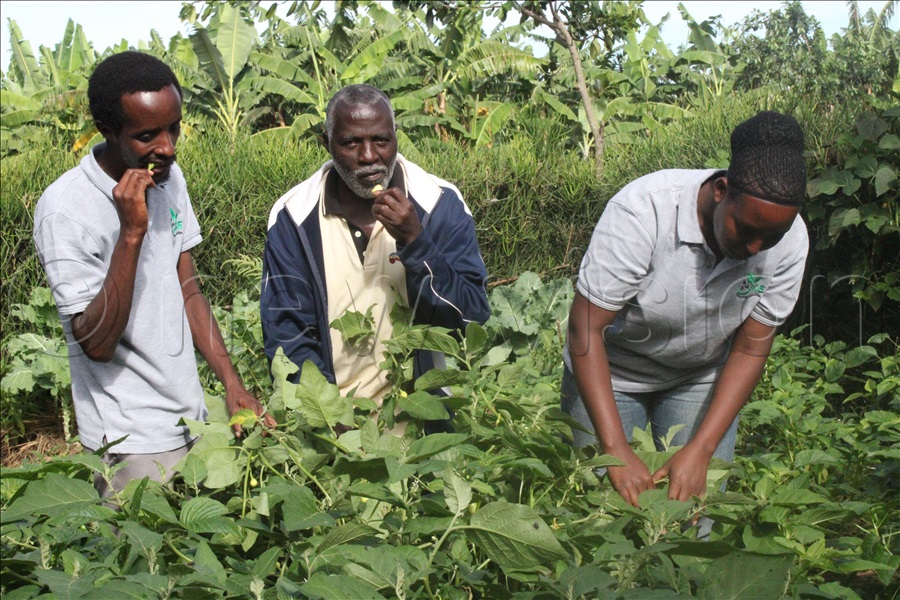By Ritah Mukasa
In 1994, John Bosco Sibomana lost his wife and five children in Rwanda genocide. They were massacred on allegations that Sibomana, was a moderate Hutu.
By that time, he was a prominent businessman and pastor in Kibungo, Rwanda with over 3,000 followers.
He fled to Tanzania before returning to Rwanda in 2003 hoping that his tormentors had changed their minds but he was wrong.
“They abducted me and threw me in a quarry to die but I miraculously survived and fled to Kisoro town, from where I settled in Isingiro district in 2005,” he says.

Sibomana lived off working in plantations of the residents. Gradually, he started pastoring people and after a few years, he established a church that currently has 300 believers.
However, he says, majority of his followers were needy. He, therefore, started vegetable farming for his family’s food security and to inspire the church as well.
“I started with the local varieties of dodo, spinach and Sukuma wiki but the yields were low,” he says.
Fortunately, last year, agronomists from the Youth Initiative for Community Empowerment (YICE) Uganda trained him on regenerative farming techniques and his yields have since tripled.
He grows cabbage, dodo, green pepper, spinach and carrots using organic manure and pesticides.
“My garden feeds my family of five and many neighbours. I also sell some vegetables in the nearby market to buy home needs like soap and salt,” he says.
He has inspired 69 households to have their own vegetable gardens as well.
Sibomana’s garden spans 50X30ft.
“Vegetables help to boost kids’ and adults’ immunity. They also give us a steady source of income,” he affirms.
Sibomana adds that he is saving to buy a water tank to harvest rainwater because it becomes difficult to water the garden during the long dry spells since water is two kilometres away.





